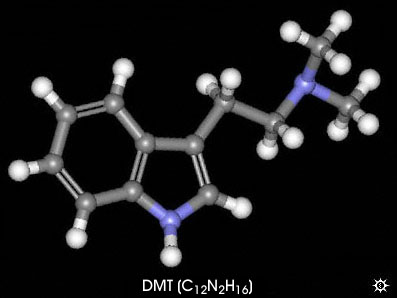Scientific research shows how darkness activates certain glands in our brain in a reproducible way. From a Yogic (and Taoist) standpoint, the pineal gland connects us to the source of existence, the ultimate union of microcosm and macrocosm.
“Complete darkness profoundly changes the sensory sensibilities of the body/brain. We are deprived of all visual reference. Sounds begin to fall away as we lose contact with the external world and turn the senses inward. The effect of darkness is to shut down major cortical centers in the brain, depressing mental and cognitive functions in the higher brain centers. Emotional and feeling states are enhanced, especially the sense of smell and the finer senses of psychic perception. Dreams become more lucid, and the dream state manifests in our conscious awareness.”
“The darkness successively actualizes higher states of […] consciousness, correlating with the synthesis and accumulation of psychedelic chemicals in the brain. Melatonin, a regulatory hormone, quiets the body and mind in preparation for the finer and subtler realities of higher consciousness (Days 1 to 3). […]”
“Melatonin, ‘the sleep molecule’, is produced in the pineal gland, in response to the darkness of night, and to the circadian rhythms of light and dark that are programmed into the hypothalamus, an endocrine gland located deep within the brain. Melatonin affects major organ systems, quieting the sympathetic nervous system and allowing daily rejuvenation of mind and body. In the dark room melatonin gradually accumulates in the brain…”
“Pinoline, affecting the neuro-transmitters of the brain, permits visions and dream-states to emerge in our conscious awareness (Days 3 to 5). Eventually, the brain synthesizes the “spirit molecules” 5-methoxy-dimethyltryptamine (5-MeO-DMT) and dimethyltryptamine (DMT), facilitating the transcendental experiences of universal love and compassion (Days 6 to 12).”
Quoted from: Chia, M., Darkness Technology
Dark Therapy / Dunkeltherapie
In recent years growing evidence suggests great value of being exposed to prolonged periods of darkness for patients suffering from depression, bipolar disease and even different forms of psychosis. In Russia research has been conducted for decades and darkrooms are often favored over (or combined with) pharmaceutical treatment.

